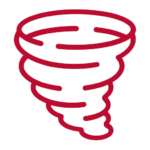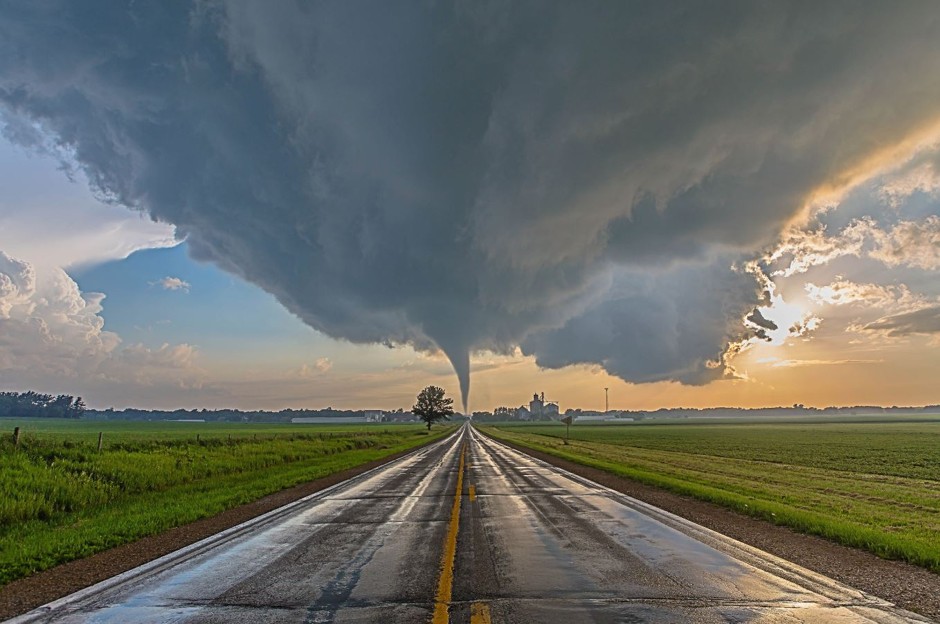
Tornadoes are common in the Midwest, and the St. Louis area is especially vulnerable. These violently rotating columns of air can reach speeds over 200 mph, carving paths more than a mile wide and several miles long. Even with improved warning systems, it’s critical to know how to respond immediately when a tornado warning is issued.
How to Prepare Before a Tornado Happens
Know the Difference Between Watches and Warnings
- Tornado Watch – Conditions are favorable for tornadoes to form. Stay alert and be ready to act.
- Tornado Warning – A tornado has been spotted or indicated by radar. Take shelter immediately in your Severe Weather Refuge Area (SWRA).
- Destructive Thunderstorm Warning – A severe storm is expected to produce winds over 80 mph and/or baseball-sized hail. Treat it like a tornado warning and shelter in your SWRA.
Know Your Severe Weather Refuge Area (SWRA)
A SWRA is a designated safe location inside a building that offers the greatest protection during severe weather events such as tornadoes or destructive winds.
Why it’s important to know your SWRA:
- Provides maximum protection from wind, flying debris, and structural damage.
- Saves critical seconds—you can get to safety immediately when a warning is issued.
📍 Tip: Building maps, posted near exits and elevator lobbies, show SWRA locations.
Understand What Outdoor Warning Sirens Mean
Outdoor sirens are designed to alert people outside—not inside buildings.
- Activated during tornado warnings or destructive thunderstorm warnings in St. Louis City or County.
- Although, it may not indicate a direct threat to WashU, you should still check alerts and be ready to act.
Get Alerts from Multiple Sources
- WashU Safe App – Instant emergency notifications from the university.
- NOAA Weather Radio – Official alerts directly from the National Weather Service.
- TV and Local News Apps – Live coverage and updates.
- Wireless Emergency Alerts (WEA) – Government alerts sent to your mobile device.
📍Tip: Use Wi-Fi for Reliable Alerts –The WashU Safe App is useful in buildings with strong Wi-Fi but limited cell service. If a text message is delayed, the app ensures you still receive essential emergency notifications right away.
What To Do When It Happens
- Go to your designated Severe Weather Refuge Area immediately.
- Do not use elevators. Use stairs if needed.
- Stay sheltered until the warning expires and an all-clear is given by emergency officials.
What To Do Right After It Happens
- Check for injuries and provide first aid if trained to do so.
- Report hazards or damage to campus security by calling WUPD 314-935-5555 or Protective Services 314-362-4357.
- Exit the building when it is safe and appropriate.
- Follow instructions from emergency personnel and stay informed through the WashU Safe App or official university communications.
